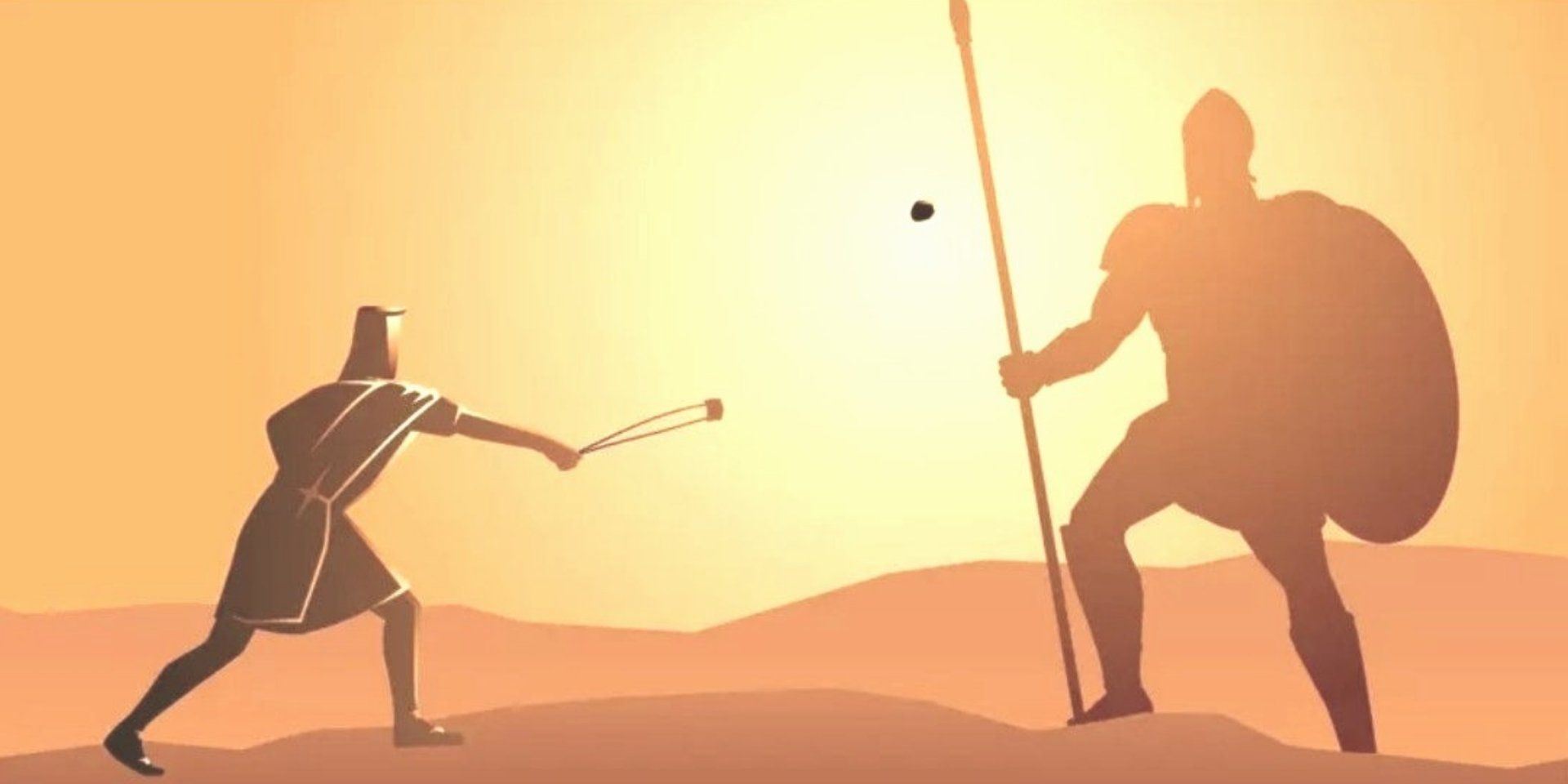
Not By Sword or Spear: A Devotional from 1 Samuel 17
Kim Huliganga
The classic narrative of David and Goliath has seeped into modern thought. Whenever underdogs face superior competitors in sports, announcers call it a David and Goliath story. This is a useful analogy because, even in 1 Samuel 17, the chances looked slim for the Israelite forces facing the mighty Philistines.
The first point to glean from this chapter is just how frightening and hopeless the Israelite army’s situation was. But no matter how hopeless or insurmountable an obstacle may be, Yahweh will deliver us despite the odds. At any rate, clearly, Israel was at a technological disadvantage. The writer even elaborately described Goliath’s physical attributes and tools (verses 4–7), showing that he was specifically chosen and outfitted for one-on-one combat. Perhaps Israel would have fared better as an army than in representative combat against Goliath. Lastly, what was at stake also contributed to the Israelites’ fears. Goliath had proposed representative combat instead of normal combat. Deciding whether to take up Goliath’s offer or fight normally would have left Saul and his forces paralyzed, for neither avenue was clearly more advantageous. Enter David, a young man not even old enough to join the army. David alone—despite the protests of his brother Eliab and Saul (verses 28–33)—spoke up against the heavy mantle of fear draped over the Israelites.
His confidence was not in himself or his own merit but in his experiences with God at his side. He used his testimony to convince Saul to allow him to fight, leading to his ultimate victory. So, despite their circumstances, God proved victorious over Goliath, the Philistines, and their gods. In a world where the victory of one army over another reflected the superiority of the victor’s God, God showed Himself all-powerful and victorious in both the corporate and individual realm. God’s victory came out of such a hopeless scenario by such an unlikely group of people that obviously He has chosen to act in such a way that every witness could know His power. This story shows that Christians should not be surprised to find themselves in hopeless circumstances and should use those circumstances to allow God to grant them victory in their lives. And victory might not come about the way we expect, for God has shown that He often uses the unlikely and unexpected paths to victory.
Secondly, God does not see what we see. While the Israelites had feared the Philistines, having been frozen in fear for at least forty days (verse 16), David was the only one willing to take a stand against the great army and its chief representative. David showed that he was a man after God’s own heart; his eyes were open to the spiritual reality of which others were not then aware. Saul and Eliab’s rejection showed that they saw David’s confidence as youthful idealism, but David did not see it this way. David’s spiritual vision, which allowed him to see things that others missed, reveals that our physical impressions can easily cause us to overlook the spiritual dimension. People were too preoccupied with what was in front of them to remember their nation’s history with God.
Even if they do not know how to overcome a particular situation, Christians can still be confident that God sees what they cannot see. As David promises in verse 47, “… the Lord does not deliver by sword or by spear; for the battle is the Lord’s and He will give you into our hands” (NASB, 1995). If we were to commit these words to memory, we could attain a faith similar to David’s. This is faith that can single-handedly inspire an entire army to victory, inspiring even those much older and more decorated than him to believe in Yahweh.
In conclusion, we must remember to be like David in the most unbearable and tragic moments in our lives. We must not be surprised to meet trauma, opposition, temptation, and fear. But, instead of letting them paralyze us, we must enthusiastically embrace Yahweh’s authority and be of the same heart and mind as the Lord of hosts who delivers the weary and downtrodden. We must be like David in his bold zeal for Yahweh’s reputation, presence, reliability, and ability to save against all odds, in a manner that may seem childlike to some.
So, let us consider the Goliaths and Philistines in our own lives. They do not always appear as individuals or hosts, but usually represent spiritual things in our lives that obstruct our function as Christ’s body. We must remember that, no matter what obstacle presents itself, we are not alone in this battle.

Kim Huliganga is a fourth year student at GLBC with a serious interest in the Greek New Testament. He has been a guest preacher at several congregations in Ontario and most recently delivered a series of sermons from the Book of Esther for the church of Christ in Surrey, British Columbia.
All Rights Reserved | Great Lakes Bible College
